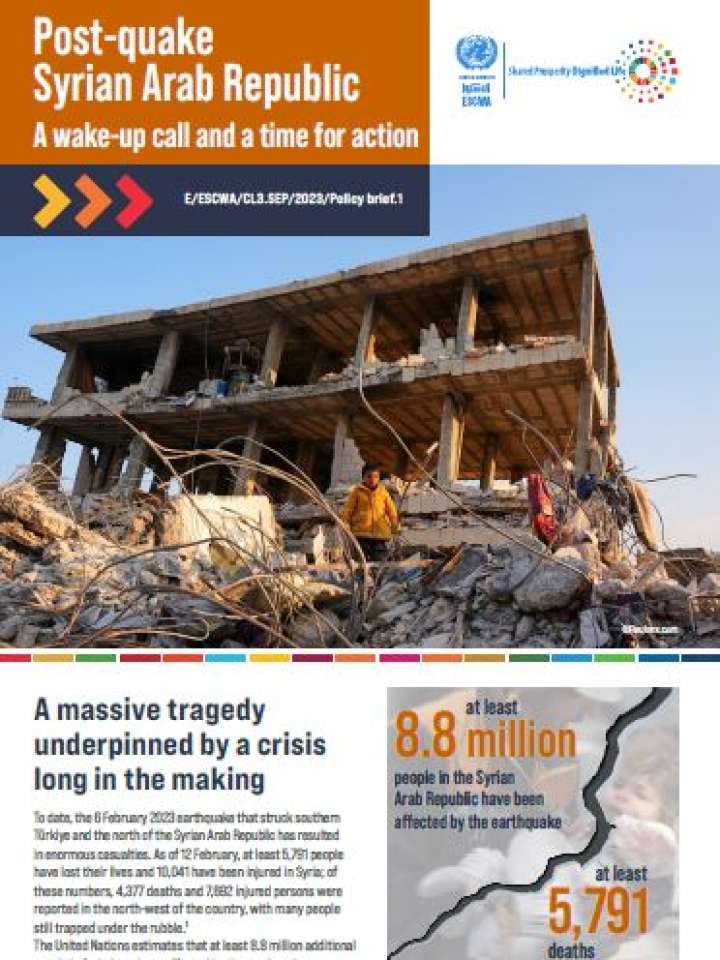Post-quake Syrian Arab Republic: A wake up call and a time for action
This policy brief issued by the UN Economic and Social Commission for Western Asia (ESCWA) urges for swift and united action to address the protracted crisis as a result of the 6 February 2023 earthquakes. Residents who survived the earthquake are left in extremely cold temperatures without drinking water, electricity, or fuel for heating, and are exposed to the danger of crumbling buildings as they try to seek shelter. The repercussions are particularly catastrophic in Northwest Syria, where 4.1 million persons depend on humanitarian aid for survival.
The policy brief promotes an inclusive, equal and coherent approach to relief as a first step towards peacebuilding and the recovery of Syria, and provides recommendations in the interests of all Syrians, including:
- Facilitating access to humanitarian aid to all parts of the country and responding to recent pledges to scale up and speed up support for relief, as well as longer term recovery, while regularly examining progress with the aim of achieving effective early recovery and leading eventually to stability and peace.
- Addressing challenges and barriers to the flow of remittances with the aim of decreasing the cost of transferring money, in line with the Sustainable Development Goals, as it is expected that remittances will surge and be key to earthquake recovery.
- Focusing on an inclusive and participatory approach to relief and integrating gender into disaster risk management and focusing on vulnerable groups, including children, older persons, and persons with disabilities, who are disproportionately affected by the crises and are more likely to fall into chronic poverty.
- Increasing resilience by prioritizing stabilization efforts and increased community resilience and individual endurable livelihoods in a sustainable way to ensure that long-term recovery is achieved. This would require focusing, shifting and scaling up resources towards initiatives that would support this objective.
Explore further
